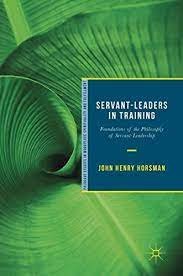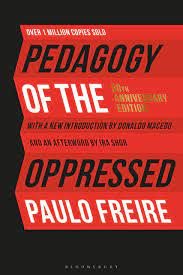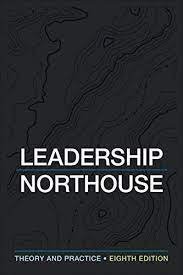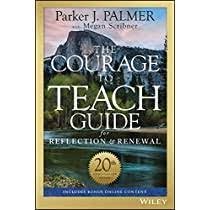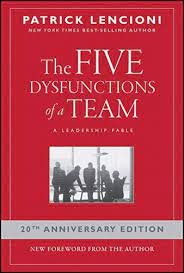
Course Reflections
“Without reflection, we go blindly on our way, creating more unintended consequences, and failing to achieve anything useful.”
- Margaret J. Wheatley
ORGL 600 | Foundations of Leadership
Dr. Dung Tran | Spring 2021
Starting the ORGL program with Foundations of Leadership proved to challenge many assumptions I had previously held about leadership. Specifically, how I show up as a leader juxtaposed to how I want to show up as a leader. As a result of this course, I have worked to challenge and gain clarity on my core values as a foundation from which to lead. This course enlightened me to a view of leadership that transcends position and authority to one centered on relationship, dialogue, and empathy.
ORGL 530 | Servant Leadership
Prof. Larry Spears | Spring 2021
The principles of servant leadership resonated deeply with me and aligns much more closely with my philosophy of leadership and how I want to show up for others. The application of those principles has changed how I think about my role as a leader and my calling to help others unlock their vast potential in themselves. Servant Leadership deepened my understanding of the power of empathy and genuinely listening to listen. When we authentically show up in service of others, we honor the humanity in one another, and help facilitate the conditions for others to thrive.
ORGL 550 | Team Building and Leadership
Dr. Josh Armstrong| Summer 2021
Team Building and Leadership highlighted the critical importance teams and teamwork play in creating a thriving organization. Through our virtual immersion, we practiced, in real-time, techniques to turn a group of strangers into a team. We built trust, created a sense of belonging, and leaned into honest communication and productive conflict. As a result of this course, I am much more comfortable and confident leaning into conflict with humility and curiosity to better understand and relate to others. Additionally, I’ve gained important situational awareness of how I show up as a teammate both generatively and, at times, negatively.
ORGL 605 | Imagine, Create, Lead
Dr. Michael Carey, Dr. Kristine Hoover, Suzanne Ostersmith, Dr. Adrian Popa | Fall 2021
Imagine, Create, Lead was my first experience on the Gonzaga campus. Having the opportunity to connect, in person, with classmates and ORGL faculty was incredibly impactful. Leaning into the creative process was both stressful and exhilarating but it highlighted the importance creativity plays in our ability to go beyond our perspectives and embrace a larger context of meaning. Since this course, I have challenged myself to strengthen the skill of creativity as a way of putting the concept of pentimento into practice. The ability to tap into creativity, to see and see again, has opened my mind to new possibilities and forced me to challenge assumptions that have previously limited my growth and development.
ORGL 610 | Communication and Leadership Ethics
Dr. Robert Doyle | Fall 2021
Communication and Leadership Ethics challenged me as much as any course in the ORGL program. This course presented content and exercises designed to challenge assumptions and beliefs. ORGL 610 provided the opportunity to leverage different tools and apply new skills to help identify where ethical differences are taking place and how dialogic communication ethic can help us engage differences.
ORGL 515 | Leadership and Human Potential
Dr. Deborah Hedderly | Spring 2022
Leadership and Human Potential provided highly practical content that was immediately applicable. The introduction to dialogic organizational development has dramatically expanded my thinking and understanding of organizational culture., both in the intention of how it’s created and how it can be effectively changed. Learning the concepts of appreciative inquiry has had a profound impact on my ability to generatively communicate and relate to others.
ORGL 516 | Relational Dynamics and Organizational Development
Dr. Dung Tran | Spring 2022
Relational Dynamics and Organizational Development increased my tactical understanding of where I fit within an organizational change model and how I can be a more effective agent for generative change both from within an organization and as an outside consultant. This course highlighted the reality that change is hard but when we align multiple components of an organization, such as structure, environment, communication, and skill development, we can create impactful, sustainable change.
ORGL 615 | Organizational Theory and Behavior
Dr. Justin Marquis | Summer 2022
The most valuable takeaway I had from Organizational Theory and Behavior was the view of leadership and relationship within a larger system. Having spent the vast majority of my career as an individual contributor or outside consultant, stepping back to gain a global or systemic view of a team or organization can be difficult. Working with the systems thinking journal has helped me develop tools to explain the need for change and the change strategy more effectively, leveraging research and data. Through this process, I am better able to focus on the key issues and points that will help create a more impactful, systemic change.
ORGL 517 | Organizational Change and Transformation
Prof. Chris Crosby | Fall 2022
Through ORGL 517, I gained an understanding of the vast complexities of organizational change and how the application of different change models can support a change agent navigate the impact on both the organizational and people being impacted. Learning about the SATA model and authority related to change has helped me develop a greater understanding of how to effectively align an organization in support of a change initiative.
